In my day job I work on helping to advance sustainability and surprisingly enough I find many similarities to the world of personal finance. I very much enjoy Mallen Baker’s blog and came across this 2016 post on The first step to being in control of your life that I think provides great insight for financial success.
Mallen discusses how a belief that you are responsible for what happens to you is key to building the skills and capacity to be successful. Basically taking personal ownership and responsibility for life’s outcomes forces you to more closely examine your choices, invest time in thinking about what can be done better, apply those learnings and basically build your capacity and ability to achieve success.
If we think about this in terms of personal finance, being able to achieve one’s goals is dependent on skillfully managing a significant number of areas. These range from having a plan that advances towards our goals, creating a budget for those goals and ensuring we stick to that budget, to honing in on careers and jobs that are fairly well remunerated, negotiating our salaries, using debt to help us not hold us back and making wise investments with the money we do have.
Each of these areas is unique and requires a breadth of different skills and activities. So developing a plan that gets me to my goals requires me to spend time thinking about the life I would like to lead, researching and understanding the costs associated with that life, having clarity on my passions, skills and resources so I can figure out how I can pay for it, and learning about how others have gotten there. Some of the key skills here are self-awareness, critical thinking, planning and problem solving.
Ensuring the very beautiful budget we create is used is equally as important to success. Having a great plan will be useless if we don’t stay on budget. This requires continuous tracking and management, which means we need to use an app to track what we spend on lunches, transit, ubers and coffees or if we’re old school write it down on paper, add it all up and analyze it. It requires willpower and may require communication if sharing your budget with a family member or friend helps you stay on track.
It will probably also require problem solving. In running the Strive workshops and in interviewing individuals, I have come across a number of people who have had trouble sticking to a budget. What was interesting was that quite often, individual core challenges were not developing, tracking or managing the budget. The root of people’s core challenges varied widely. Sometimes it was in not having goals or not fully owning their goals. Other times the root issues revolved around difficulty dealing with emotional issues. It is easy to understand that after completing a degree and not finding a job in your field, or after a relationship break-up, or after years of struggling to survive, one can have difficulty creating a new vision for ones life and establishing specific goals. Without goals , I saw many individuals stop paying attention and lose track of their money. Some of the key skills here are discipline, self-awareness, self-management and empathy.
Negotiations help extract more value from the work we do or pay less for the products and services we buy. This is super important for helping to get and keep money in our pockets. Contrary to frequent misconceptions, negotiations are not one-time events. If you do them right like Margaret who I interviewed, they involve understanding the value and wages associated with particular areas of work. Glassdoor and PayScale are very helpful for this as is talking to colleagues about salaries and seeing what consultants charge for particular areas of work. Negotiations also involve positioning yourself to do the most valuable areas of work for the organization, sharing your salary goals with organizational leaders, documenting and promoting your successes, as well as using every opportunity to set the stage for future negotiations by articulating expectations, contributions and then negotiating.
You can use these skills when you are spending money as well. I recently had the oil changed on my car and the service provider told me that we needed new breaks in the front and back as well as replacement of the serpentine belt. We took the car to my brother in law who is a mechanic and found that only the front breaks needed to be replaced and that their prices for parts and labour were marked up significantly vs the market. Basically we did not need to do all the work outlined right now and it should only cost about 50%. We ended up saving $700.
And so I very much agree with Mallen Baker in that having a belief that you are responsible for what happens to you is critical to helping you be successful with money. This lens helps you get into the granular detail of your finances, the root issues of what may be holding you back and build the capacity, skills and resources to get to your goals.
I also believe that the meaningful value provided by this lens can only lead to the success of all Canadians if it is paired with systemic interventions that address deeply rooted structural and systemic issues ranging from inadequate minimum wage, and precarious employment, to the high cost of education. Such issues are directly impeding individual success and have 44% of the Canadian population living paycheque to paycheque.


